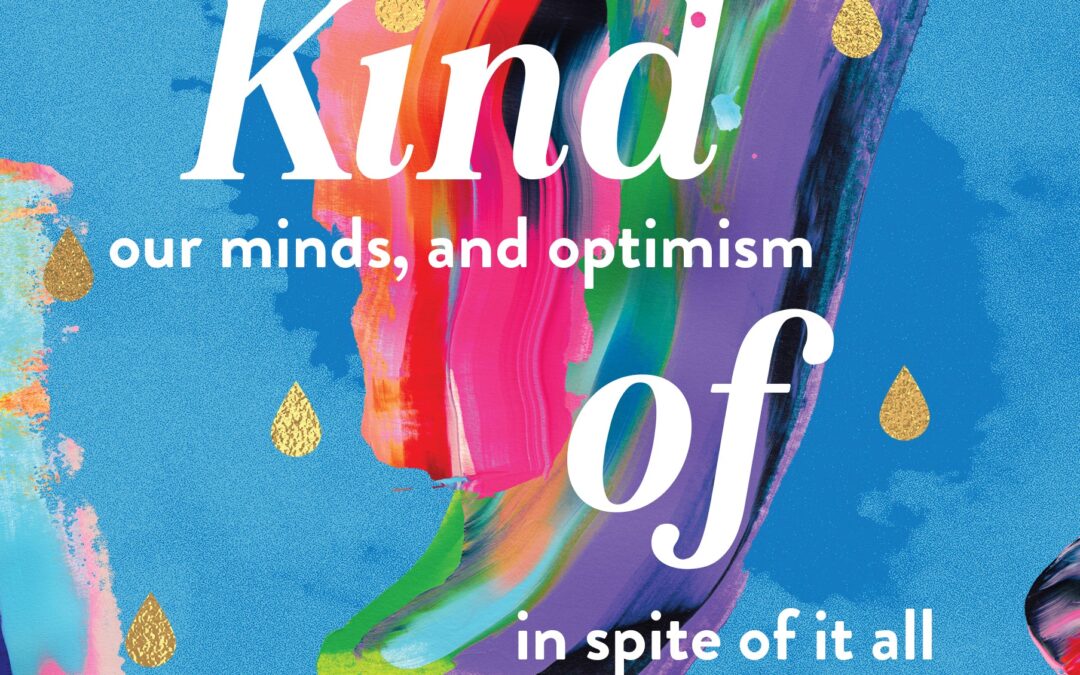Anna Spargo-Ryan is known for her successful writing career (two novels, winner of the inaugural Horne Prize Essay, Non-Fiction Editor at Island Magazine), but it is her most recent endeavour, the memoir A Kind of Magic: A memoir about anxiety, our minds, and optimism in spite of it all (Ultimo Press 2022), which has ignited a discussion about mental illness, anxiety, panic, psychosis, paranoia, fear and of course hope.
The book is cleverly divided into relatively recent sections with her therapist, interspersed with her history, each chapter headed with a different diagnostic definition of an aspect of living life with a mental illness (often in reality a very poor or inadequate definition).
One of the opening quotes is from The Age: ‘Anna Spargo-Ryan doesn’t seem at all like a miserable person’, and this is true of so many people who manage to mask their symptoms, or to simultaneously have terribly traumatic and melancholic feelings whilst also being able to function as if they are ‘fine’. Spargo-Ryan interrogates her family history (is there a ‘suicide gene’ in her genetic make-up?), her childhood experiences, her extended family members’ mental health issues, the ambivalence and depression and inexplicable behaviour of her adolescence and as a young adult, her time as a new (young) mother and now as a parent to older children. Each stage of life has given her new challenges and she has undergone severe swings of being unable to cope (and being in therapists’ rooms or emergency departments or hospital beds), to periods when she not only copes, but thrives, on both a personal and professional level, with a spark of optimism that continues to glow quietly and occasionally erupts into flame.
She examines the dynamics between time, memories, our brains, our hearts, our emotions, our stories and our relationships. With sharply observed insight, she sets her own experience against the reality of the mental health system and details the failings and cracks into which people may fall. As with all good memoirs, A Kind of Magic is brutally honest, revealing uncomfortable behaviours and feelings (that many readers may relate to); it is also tender and warm, questioning and curious, and wondrously, often it is hilariously funny. The author has the ability to bring the reader in close to her own life, her own mind, her own reality, and to see from her eyes. The terror of panic, despair, anxiety, and the awkwardness of truly dissociative behaviour is rendered comprehensible through her illuminating depiction of her own experience, and her forensic analysis of her thought processes. Obviously, if you have experienced similar issues, this book will speak to you. But it is also a great manual for those who have friends or loved ones or partners or parents or children with mental health issues, giving readers a carefully tended lens to see what may have been previously blurry or not clearly understood.
The content of this book is brilliant but so is the writing. Spargo-Ryan’s skills as an essayist and writer elevate the book from an interesting depiction of mental illness to a fascinating, joyful, humorous, page-turning, moving and warm story of what it is to be human, to have feelings, to be misunderstood (even by yourself) and to take small steps forward to better mental health, or even just to acceptance and tolerance of difference, and how to better cope with those difficulties. The writing is tight, authentic, informative without being didactic, touching without being sentimental, and enlightening. I enjoyed this book so much (even though ‘enjoy’ feels like the wrong word) because it provided me with a unique insight and perspective, and because I could appreciate the skill and care with which it was written. It is courageous and extraordinary, as it says on the cover, but it is also lyrical and highly readable. It contains a special kind of magic, optimism and hope that will be a beacon for many readers, a light that shines brightly with encouragement and compassion.

